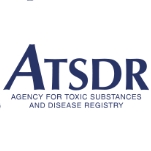Officials
Back to Officials


Offical

Name: Portier, Christopher
Current Position: Previous Director
Christopher J. Portier, who has thirty years of relevant, high-level experience under his belt, took over as director of the Agency for Toxic Substances and Disease Registry (ATSDR) on August 2, 2010. ATSDR is a federal public health agency under the umbrella of the Centers for Disease Control (CDC) based in Atlanta, Georgia. The agency’s mission is to prevent harm to human health and diminished quality of life from exposure to hazardous substances found at waste sites, in unplanned releases, and in other sources of pollution present in the environment. ATSDR identifies communities where people might be exposed to hazardous substances in the environment, but ATSDR cannot enforce any regulations by closing down a plant or other business; it can only make recommendations to the Environmental Protection Agency.
A Louisianan of Cajun ancestry, Dr. Portier earned his BSc degree in mathematics at Nicholls State University in 1977, and his MS and PhD degrees in biostatistics at the University of North Carolina in 1979 and 1981, respectively. He has authored more than 150 peer-reviewed publications, 30 book chapters, and 40 technical reports.
From 1978 to 2010, Portier worked at the National Institute of Environmental Health Sciences (NIEHS), in Research Triangle Park, North Carolina, advancing to that agency’s leadership ranks. From 1978 to 1990, Portier was a Mathematical Statistician at NIEHS; from 1990 to 1993, he was Head of the Risk Methodology Section; from 1993 to 2005, he was Chief of the Laboratory of Computational Biology and Risk Analysis, including serving a stint from 1996 to 2000 as Associate Director for Risk Assessment, and a tour from 2000 to 2006 as Director of the Environmental Toxicology Program and Associate Director of the National Toxicology Program (NTP). Finally, from 2006 to December 2009, Portier served as Director of the Office of Risk Assessment Research and Associate Director of NIEHS, after which he spent a six-month sabbatical as a guest of the National Research Centre for Environmental Toxicology at the University of Queensland in Brisbane, Australia.
Portier is an expert in the design, analysis, and interpretation of environmental health data. His research efforts and interests include such diverse topics as cancer biology, risk assessment, climate change, bioinformatics, immunology, neurodevelopment, genetically modified foods, and genomics. He has contributed to the development of cancer risk assessment guidelines for national and international agencies. He led the U.S. evaluation of electromagnetic fields by national and international scientists, which was the first comprehensive review in this field. Portier directed the efforts of the U.S. government to develop a collaborative research agenda with Vietnam on the health effects of Agent Orange used by the U.S. against that country.
He directed a multiagency review of research needs for the health effects of climate change for the entire U.S. government. A Human Health Perspective on Climate Change was published in April 2010. He has served as an advisor to the Finnish Academy of Sciences and Letters on the Centers of Excellence Research Program, as a member of World Health Organization/International Agency for Research on Cancer scientific committees, and as a reviewer for grants for the United States, the European Union, and many other grant-sponsoring organizations.
He is a fellow of the International Statistics Institute, the World Innovation Foundation, and the American Statistical Association. He spent 14 years (1989-2003) as an associate editor of Risk Analysis: An International Journaland 19 years (1987-2006) as an associate editor of Environmental Health Perspectives.
A Democrat, since 2007 Portier has contributed $1,550 to Democratic candidates and causes, including $500 to Barack Obama’s presidential campaign, $250 to Hillary Clinton’s presidential campaign, and $300 to the Democratic National Committee.
Curriculum Vitae (pdf)
Health at Risk as Climate Changes (by Sarah Avery, Raleigh News & Observer)
- Latest News
- D.C. Public Schools will Teach all Second-Graders to Ride a Bike
- New Rule in Germany Limits Sales of Sex-Themed E-Books to 10pm to 6am
- What Happened to the 6-Year-Old Tibetan Boy the Chinese Government Kidnapped 20 Years Ago?
- U.S. Ambassador to Turkey Photoshops his Hair Color to Mock Turkish Mayor
- Mystery Artist Calls Attention to Unfixed Potholes by Drawing Penises around Them





